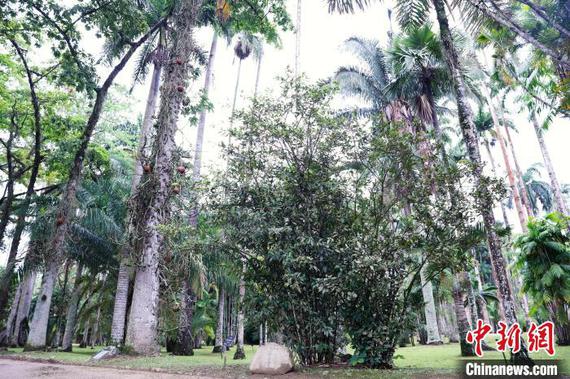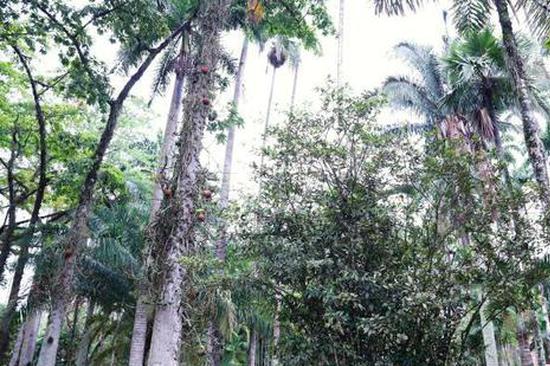Tea bridges two-century Sino-Brazilian friendship
(ECNS) -- As the southern hemisphere enters early summer, the Rio de Janeiro Botanical Garden (JBRJ) in Brazil is lush and vibrant.
Just inside the garden’s entrance, visitors are welcomed by the graceful aroma of tea from an ancient tea tree. Nearby, a stone tablet from Fujian Province, China, engraved in both Portuguese and Chinese, bears an inscription that reads: In 1812, the first Chinese immigrants to Brazil planted tea trees here, a testament to the China-Brazil friendship.
On Nov. 16, a new China-Brazil Friendship Garden was opened in the JBRJ, in celebration of the enduring bond between the peoples of China and Brazil. The Chinese and Brazilian peoples, united by tea, have once again deepen their friendship through tea.
In the early 19th century, Chinese tea farmers embarked on a difficult journey, bringing tea plants and saplings to Brazil. They planted the first tea trees in what is now the JBRJ, sharing their knowledge of tea cultivation. Since then, Chinese tea took root in Brazilian soil.
By 1817, nearly 6,000 tea trees had been planted in the garden.
In 1873, at the Vienna World's Fair, Brazilian tea earned widespread acclaim, and Brazil emerged as one of the world’s leading tea producers.

Today, visitors to Rio’s Tijuca National Park may encounter a small, elegant Chinese-style pavilion, or China Pavilion. This landmark, built by the Rio government in the early 20th century, commemorates the first Chinese tea farmers who crossed mountains and seas to bring tea to Brazil.
The pavilion serves as a reminder of Brazil’s respect for these pioneers.
More than 200 years after those first tea trees were planted, they have become a deep-rooted part of Brazil’s cultural heritage.
According to Su Ziliang, secretary of the Chinese Brazilian Friendship Association in Rio, the word “chá” (tea) in Portuguese sounds very similar to the Chinese pronunciation, underscoring the long-lasting connection between the two cultures.
Over the centuries, Chinese immigrants in Brazil have contributed to the spread of Chinese culture.
From introducing tea culture and Chinese culinary traditions to Rio, Chinese Brazilians have enhanced Brazil’s development and bridged the cultures between China and Brazil.
Today, Chinese elements can be found throughout Rio. Locals travel on Chinese-made subway trains, take ferries built by China, and experience Chinese culture at Confucius Institutes. More and more aspects of Chinese life are subtly shaping daily life in Brazil.
In addition, Brazil has officially recognized important dates that celebrate the China-Brazil relationship, such as “China-Rio de Janeiro Friendship Day” and “Chinese Language Day”.
In 2018, Brazil designated Aug. 15 as “Chinese Immigration Day,” further acknowledging the contributions of the Chinese community to Brazilian society.
These celebrations, connected with China, continue to strengthen the friendship between the two nations.
Despite the vast distance between China and Brazil, the bridge built through tea has brought the two nations closer than ever.

